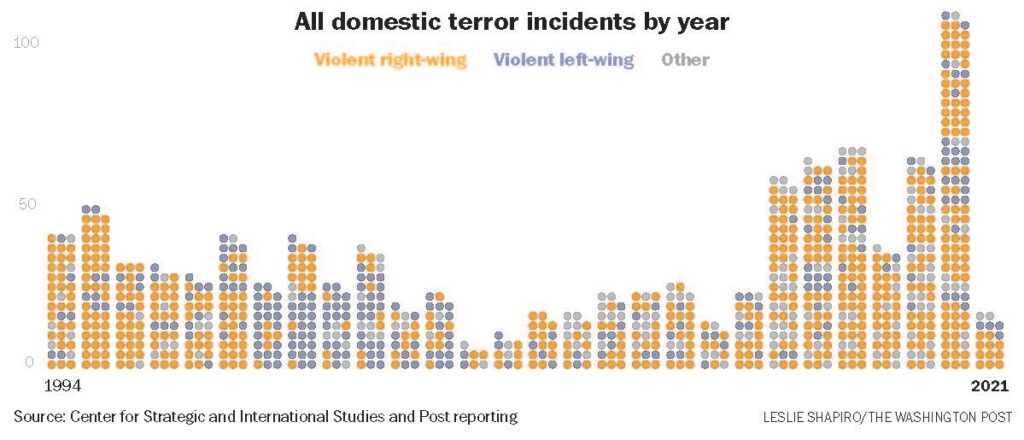The resurgence of domestic terrorism in recent years has posed an intensifying threat to national security. The continually evolving and persistent nature of domestic terrorism comes with a demand for improved threat mitigation tactics. To identify factors that contribute to domestic terrorism and implement these tactics, the Federal Government looks to outsource contracts and increase information sharing with technology companies.

On June 15, the Biden Administration released a national strategy to serve as a blueprint for more successful identification of domestic terrorists. The blueprint focuses on combining long-standing approaches to preventing terrorism with modern technological methods. Thus, a key element the administration has defined in this plan is looking to technology companies to provide information, expertise, and analysis. The Biden administration contends that intercommunication among governmental and private sector entities is the most effective way to address multifaceted issues, like domestic terrorism threats.
The plan outlines several key strategic goals for combatting domestic terrorism threats, in conjunction with law enforcement investigations. The first of these goals focus on advancing research and analysis related to terrorism threats. In totality, this goal emphasizes having a complex understanding of the domestic terrorism threat landscape and using this knowledge as a foundation for data collection and analysis. In order to lay a complete foundation, the government will look to outside entities with expertise in data analytics and improve dissemination of information with these entities.
A second key pillar of the Biden Administration’s report is recognizing the international aspect of domestic extremism- the link between extremists domestically and those abroad sharing similar ideology. Identifying and confronting transnational linkages is imperative to creating a comprehensive strategy for combating extremism. Achievement of this strategic goal involves enhancing communication between the US government and foreign entities. Praescient Analytic’s capabilities in data-driven technological assessment, integration and embedded analysis extend to identifying and thwarting domestic terrorism threats. In a previous armed forces mission, Praescient Analytics combined disparate data on enemy movements, suspected operating areas, and attack events in order to assist the US military in predicting insider attacks. Praescient also has experience specific to terrorism threat investigation and mitigation. Our Analysis as a Service Team was able to track the Boston Police Department’s investigation of the Boston Marathon Bombing suspects, ultimately leading law enforcement on a path to justice. Similarly, in a counterterrorism investigation workflow, Praescient’s team of experts was able to rapidly identify data and relationships from disparate data to uncover a terrorist network in North Africa. The technological solutions and analysis provided by Praescient provides the foundation needed to identify incitements of potential terrorism threats and linkages with international entities.